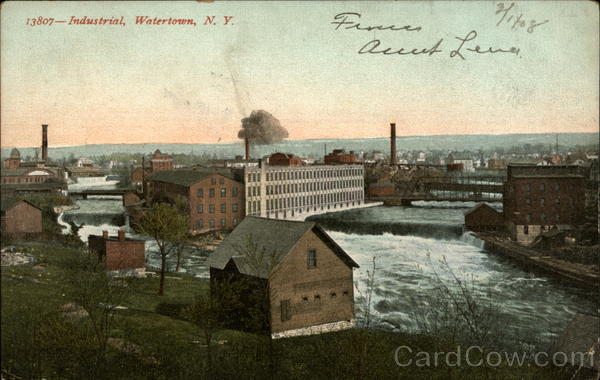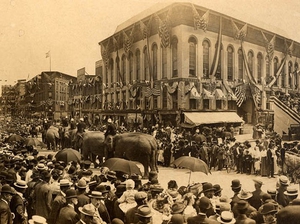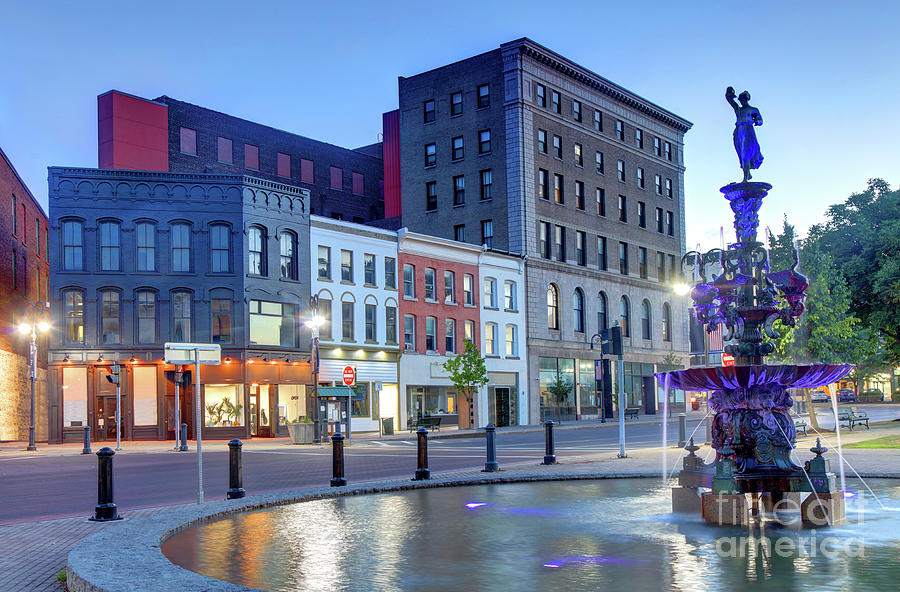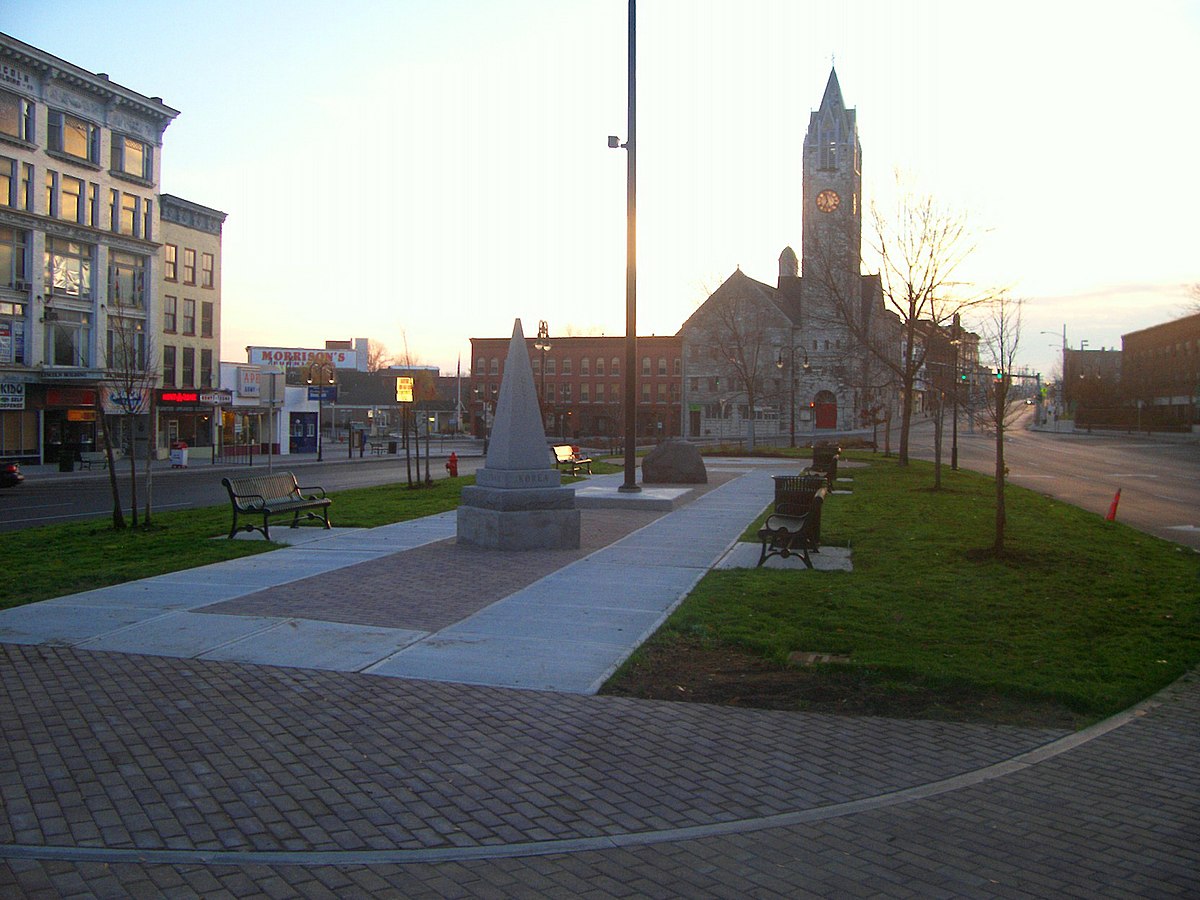Watertown, New York: A City Rooted in History and Industry
Related Articles: Watertown, New York: A City Rooted in History and Industry
Introduction
In this auspicious occasion, we are delighted to delve into the intriguing topic related to Watertown, New York: A City Rooted in History and Industry. Let’s weave interesting information and offer fresh perspectives to the readers.
Table of Content
Watertown, New York: A City Rooted in History and Industry

Watertown, New York, nestled in the heart of the state’s northern region, is a city steeped in history, industry, and natural beauty. Its strategic location at the confluence of the Black River and the St. Lawrence Seaway has shaped its development, fostering a rich tapestry of cultural heritage, economic activity, and recreational opportunities.
A Glimpse into the Past:
Watertown’s roots trace back to the early 18th century, when European settlers began exploring the area. The city’s official founding in 1800, however, is attributed to Judge Samuel Thompson, who envisioned a thriving community at the confluence of the two rivers. The name "Watertown" reflects this geographical advantage, highlighting the city’s access to vital waterways.
The 19th century witnessed a period of rapid growth for Watertown, propelled by the development of industries like lumber, paper, and textiles. The city’s proximity to natural resources and its strategic location along transportation routes made it a hub for manufacturing and trade. This industrial heritage is still evident in Watertown’s cityscape, with historic mills and factories standing as testaments to its past.
A City of Today:
While Watertown’s industrial past is integral to its identity, the city has diversified its economic base in recent decades. Today, it is a thriving center for healthcare, education, and tourism. Fort Drum, a major US Army base located just north of Watertown, plays a significant role in the local economy, providing employment opportunities and contributing to the city’s vibrant military community.
Watertown’s commitment to education is evident in its numerous institutions, including SUNY Polytechnic Institute, Jefferson Community College, and a robust public school system. These institutions attract students from across the region, fostering a dynamic and intellectual environment.
The city’s natural beauty is another defining characteristic. Watertown is surrounded by rolling hills, sparkling lakes, and vast forests, providing ample opportunities for outdoor recreation. The Black River, with its picturesque waterfalls and scenic trails, is a popular destination for fishing, kayaking, and hiking. The city’s proximity to the St. Lawrence River and the Thousand Islands region further enhances its appeal as a recreational hub.
A Look Ahead:
Watertown continues to evolve, embracing its historical legacy while adapting to the challenges and opportunities of the 21st century. The city is investing in its infrastructure, promoting economic development, and fostering a welcoming and inclusive community. Its strategic location, coupled with its rich history, diverse economy, and stunning natural beauty, positions Watertown as a city with a bright future.
FAQs about Watertown, New York:
Q: What is the population of Watertown, New York?
A: As of the 2020 US Census, the population of Watertown, New York is approximately 25,860.
Q: What are the major industries in Watertown, New York?
A: Watertown’s economy is diverse, with significant contributions from healthcare, education, manufacturing, and tourism. Major employers include Fort Drum, Samaritan Medical Center, and Watertown Savings Bank.
Q: What are some popular tourist attractions in Watertown, New York?
A: Watertown offers a variety of attractions for visitors, including the Jefferson County Historical Society, the Thompson Park Zoo, the Black River and its waterfalls, and the Thousand Islands region.
Q: Is Watertown, New York a good place to live?
A: Watertown offers a high quality of life with affordable housing, excellent schools, and a strong sense of community. Its proximity to nature and its vibrant cultural scene make it an attractive destination for residents of all ages.
Tips for Visiting Watertown, New York:
- Explore the Black River: Take a scenic boat tour, go fishing, or hike along its picturesque trails.
- Visit Fort Drum: Learn about the history and importance of this major military base.
- Discover the Thousand Islands: Explore the stunning natural beauty of this iconic region.
- Experience the city’s cultural scene: Visit the Jefferson County Historical Society, attend a performance at the Watertown Opera House, or explore the city’s vibrant arts scene.
- Enjoy the outdoors: Hike in the Adirondack Mountains, go camping at one of the many state parks, or simply relax by a lake.
Conclusion:
Watertown, New York, is a city with a rich history, a diverse economy, and a vibrant culture. Its strategic location, coupled with its natural beauty and commitment to education and community, makes it a thriving and welcoming place to live, work, and visit. As Watertown continues to evolve, it remains a testament to the resilience and adaptability of communities rooted in history and driven by progress.







Closure
Thus, we hope this article has provided valuable insights into Watertown, New York: A City Rooted in History and Industry. We thank you for taking the time to read this article. See you in our next article!